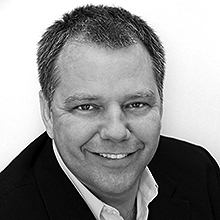
In a recent report from The Conference Board of Canada, Inside and Outside the Academy: Valuing and Preparing PhDs for Careers, the authors employ data from the 2011 census to assert that fewer than one in five (18.6%) of Canadians holding a PhD are employed as full-time university professors. The number drops to fewer than one in six, or 16%, if only those aged 25-64 and in the labour force are considered.
In a recent report from The Conference Board of Canada, Inside and Outside the Academy: Valuing and Preparing PhDs for Careers, the authors employ data from the 2011 census to assert that fewer than one in five (18.6%) of Canadians holding a PhD are employed as full-time university professors. The number drops to fewer than one in six, or 16%, if only those aged 25-64 and in the labour force are considered.
These data have prompted other reports and a flurry of media stories that lament the over-production and under-employment of PhDs graduating from Canadian universities. Even HEQCO’s own report, which I co-authored in 2013 (So You Want to Earn a PhD? The Attraction, Realities, and Outcomes of Pursuing a Doctorate) provided context for what was perceived by many to be bleak prospects when it came to tenured appointments for PhD graduates.
The problem is that the census data upon which The Conference Board report is based represents merely a 2011 snapshot of PhD holders living in Canada, nearly half of whom immigrated here with their doctorates already in hand. It does not actually track what is happening to recent or current PhD graduates from Canadian universities.
Over the past few years, a number of Canadian and American institutions and associations have taken the time to track online where recent PhD graduates have actually found employment. As it turns out, the ability to track PhD graduates through their online footprint is surprisingly simple and yields high levels of current and detailed data. The results are also nowhere near as discouraging as the 2011 census, The Conference Board report, and other sources would have you believe:
- A study by the American Historical Association (2013) found that 53% of history PhDs who graduated from 1998-2009 secured tenure-track positions.
- Duke University tracked its PhD graduates from 2003-2013 and found that more than 50% in both the humanities and the social sciences had obtained tenure track positions.
Next spring, HEQCO will release a study based on data derived from open-source web searches to track the entire 2009 PhD graduating cohort from Ontario universities. Another national study is also currently underway, a SSHRC-funded project (TRaCE) led by McGill University and involving more than 24 partner institutions across Canada. They will be tracking PhD graduates in selected humanities departments and faculties from the cohorts of 2004-2014. Within a few months we will have much more reliable data on what is actually happening with recent Canadian PhD graduates when it comes to employment both within and outside the academy. The results may be surprising to many, and even somewhat more encouraging than many of us had previously believed.
As The Conference Board report suggests, we should be making our PhD students and graduates aware of the other career options available to them outside of academia. And yes, our graduate programs should be providing mentoring and professional development opportunities to prepare those who are interested in those non-academic options. But like anything we do related to higher education policy, in order to do it well we need solid and reliable information that reflects the current realities of PhD graduates.
The pursuit of a PhD in particular requires substantial investments by students, institutions and governments. Better data on PhD outcomes are available; there is a good chance that the forthcoming HEQCO and TRaCE studies will begin to give us better information about the kinds of jobs recent PhD graduates are securing (particularly outside the academy). After that we need to go further and find out more about their salaries, as well as the skills they acquired during the PhD and how those skills are being utilized in their various jobs.
Richard Wiggers is HEQCO’s executive director of research and programs.

3 replies on “Richard Wiggers – Wanted and coming: Solid, reliable and current info on life after PhD”
Looking forward to these upcoming reports! Should be interesting. Up until this point, we certainly haven’t had very good data on graduate student employment outcomes.
Great! Excited to see these reports once they are available.
I’m always curious about these findings because I know so many PhDs who are struggling to get good work for themselves. In some cases it takes years; meanwhile they may freelance (including teaching as a sessional instructor) but their employment is not secure or lucrative or necessarily meaningful to them.
[…] The Globe & Mail reports on the study results, demonstrating that PhDs really ARE finding tenure track jobs! One third of the PhDs produced in Ontario appear to have gone on to tenure-track jobs, with half of those jobs at Canadian institutions. This is presented as a substantially improved outcome relative to past reporting (from the Conference Board of Canada) that less than 20% of Canadian PhD holders have full-time faculty jobs in Canada (see also here). […]